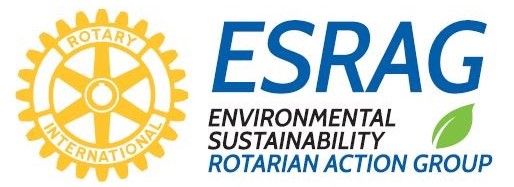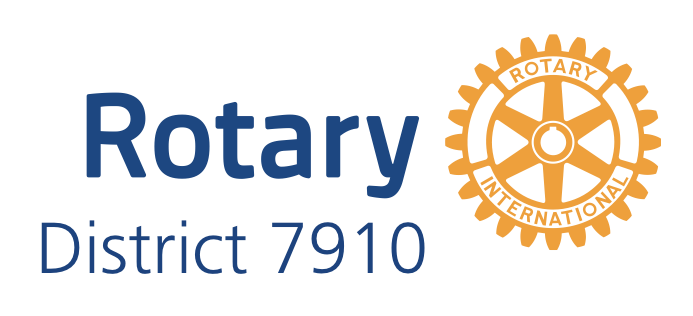 Insects are a Climate-Friendly Option for Animal Feed
Insects are a Climate-Friendly Option for Animal FeedUsing insects for food has been discussed as a potential climate change solution for numerous reasons. Notably, raising insects requires minimal land, they can be fed on food waste, and their entire bodies are edible. But while consuming insects may be a nonstarter for some people, it appears to be less eyebrow-raising to use insects as animal feed for livestock and for pets. According to a recent report by CBS News, insects are being explored as a high-protein, low-carbon alternative to conventional feedstocks. The use of insects in animal feed has gained attention as a means to address sustainability concerns. It has been estimated that around 1.2 trillion edible insects are raised on farms annually, providing ranchers with an opportunity to reduce their reliance on carbon-intensive crops such as soybeans
June 22: ESRAG's Annual Meeting to be Keynoted by Dr Rebecca Huntley
What’s the perfect antidote to eco-blues?
Environmental Action! As a people of action, we create hope through our environmental projects and work. So how can we talk about climate change in a way that will lead to positive action in time to make a difference? Join us on June 22 at ESRAG's Annual General Membership Meeting to hear Rebecca Huntley's excellent advice.
Following Dr. Huntley's presentation, we will learn how ESRAG departments are and can put her points into action. You will also hear from our Directors about ESRAG's achievements for the past Rotary year, plans for the coming Rotary year, bid farewell to retiring Directors, and welcome the newly-elected ones.
ESRAG's Annual General Membership Meeting will be held on Zoom, Thursday 22 June 2023, 1:00 t0 2:30 pm UTC. Click here to register .
-----------------------------------------------------------------------------------------------------------------------------------------------
Lebanese Rotarians Racing to Restore the Cedars of Lebanon
Lebanese Rotarians are racing to qualify for a global grant to plant a cedar forest on desiccated land on the slopes of Mount Lebanon this fall. The project will protect the region’s priceless biodiversity and boost eco-tourism. Called Arztak Hawytak (“Your Cedar, Your Stamp”), it is rooted in love for their country and hope for its recovery from violence, disaster, and diaspora.
Lebanon has suffered the loss of 80% of its forests, a trend exacerbated by massive wildfires last summer. But the Rotary project team embraces the long view. “The cedar is the symbol of our identity and our resilience,” says Samar Salman, District 2452 Environmental Chair, who is leading the campaign to plant and nurture 4,000 cedars on land donated by the resort town of Ehden on the slopes of Mount Lebanon. “If the seedlings survive the first three years, they can live for 600 years. Tomorrow has to be built today. Tomorrow is too late.”
Lebanese Rotarians have succeeded in raising funds for Arztak Hawytak from their clubs, district, Zone, and the business community. Samar Salman’s club, Beirut Cadmos, is partnering with ESRAG Past Chair Christopher Puttock’s Rotary Club of Honolulu in the quest to complete the fundraising. Donations from clubs in as many districts as possible would maximize the 80% Rotary Global Grant match for District Designated Funds (DDF). The project team needs $35,000 in DDF to reach the project budget of $102,880
What’s the perfect antidote to eco-blues?
Environmental Action! As a people of action, we create hope through our environmental projects and work. So how can we talk about climate change in a way that will lead to positive action in time to make a difference? Join us on June 22 at ESRAG's Annual General Membership Meeting to hear Rebecca Huntley's excellent advice.
Following Dr. Huntley's presentation, we will learn how ESRAG departments are and can put her points into action. You will also hear from our Directors about ESRAG's achievements for the past Rotary year, plans for the coming Rotary year, bid farewell to retiring Directors, and welcome the newly-elected ones.
ESRAG's Annual General Membership Meeting will be held on Zoom, Thursday 22 June 2023, 1:00 t0 2:30 pm UTC. Click here to register .
-----------------------------------------------------------------------------------------------------------------------------------------------
Lebanese Rotarians Racing to Restore the Cedars of Lebanon
Lebanese Rotarians are racing to qualify for a global grant to plant a cedar forest on desiccated land on the slopes of Mount Lebanon this fall. The project will protect the region’s priceless biodiversity and boost eco-tourism. Called Arztak Hawytak (“Your Cedar, Your Stamp”), it is rooted in love for their country and hope for its recovery from violence, disaster, and diaspora.
Lebanon has suffered the loss of 80% of its forests, a trend exacerbated by massive wildfires last summer. But the Rotary project team embraces the long view. “The cedar is the symbol of our identity and our resilience,” says Samar Salman, District 2452 Environmental Chair, who is leading the campaign to plant and nurture 4,000 cedars on land donated by the resort town of Ehden on the slopes of Mount Lebanon. “If the seedlings survive the first three years, they can live for 600 years. Tomorrow has to be built today. Tomorrow is too late.”
Lebanese Rotarians have succeeded in raising funds for Arztak Hawytak from their clubs, district, Zone, and the business community. Samar Salman’s club, Beirut Cadmos, is partnering with ESRAG Past Chair Christopher Puttock’s Rotary Club of Honolulu in the quest to complete the fundraising. Donations from clubs in as many districts as possible would maximize the 80% Rotary Global Grant match for District Designated Funds (DDF). The project team needs $35,000 in DDF to reach the project budget of $102,880
